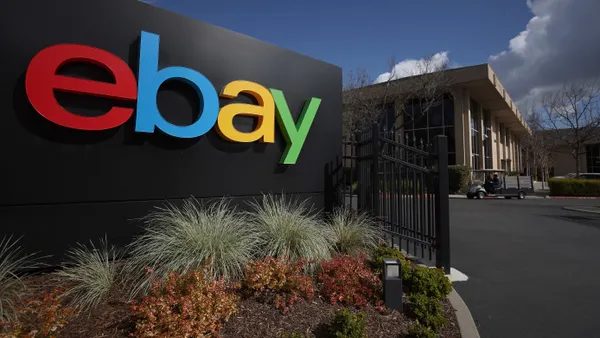Dive Brief:
- Following a retail tech investing boom, global investment in retail technology has dipped 11% to $23.8 billion in Q1 2022 compared to $26.6 billion in Q4 2021, according to a report from CB Insights. The number of retail tech deals declined by 7% quarter over quarter.
- Of all the retail exits in Q1 2022, almost 96% of them were mergers and acquisitions. Only 11 companies went public in Q1 2022, half as many as went public in Q4 2021, according to the report.
- Store management technology was the only sector with a bump in funding, increasing by 10% to $2.3 billion quarter over quarter. The biggest deals involved technology companies that could monitor shelves, facilitate payments and digitize stores in emerging markets.
Dive Insight:
With the exception of store management technology, overall retail tech investment activity cooled during the first quarter.
This is even among unicorn companies whose valuations reach or surpass $1 billion. For a time, retail unicorns appeared to be having a moment. Away, Casper, Glossier and Rent the Runway all earned the title in 2019. And last year, 17 retailers filed for IPOs, coming off of a two-decade high across industries.
However, the pace of new unicorns has dropped by a third from the fourth quarter of 2021 to the first quarter of this year, according to the report. A few did emerge: Klarna, Checkout.com and Instacart were the largest of the quarter by valuation, with Fanatics, GoPuff and Bolt also making an appearance in the top 10.
Almost half of the new unicorns are in supply chain and logistics, including demand planning technology, supply chain visibility platforms, robotic fulfillment systems, and supply chain sustainability solutions.
Meanwhile, mergers and acquisitions made up the majority of retail exits in the first quarter, especially in e-commerce and supply chain and logistics tech.
Though the number of mergers and acquisitions has dropped from its 2019 peak, acquisitions have been an avenue for direct-to-consumer brands to gain capital besides venture capital investors. DTC brands have been bought by retailers that were once their competitors, but some deals fail to come together as regulators determine whether they are anti-competitive, sources told Retail Dive.












